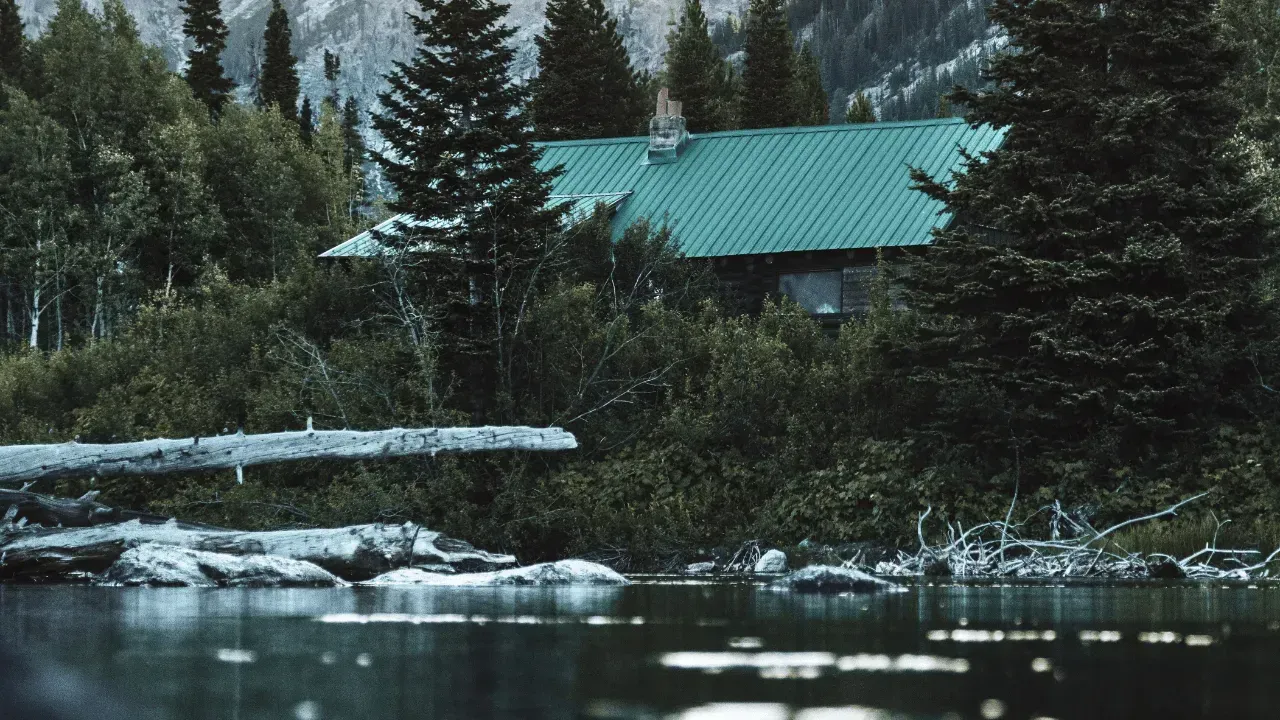Average Cost of Homeowners Insurance in Colorado (2023)
See How We're Different
or call us: 303-421-5123
Homeowners insurance is an essential protection for homeowners in Colorado, ensuring that their property is covered in the event of unexpected damage or loss.
Understanding the average cost of homeowners insurance in Colorado is crucial for homeowners looking to budget and make informed decisions about their coverage.
In this article, we will delve into the factors influencing insurance costs, provide a breakdown of the average expenses, compare Colorado's rates to the national average, and offer some tips on how to potentially lower your homeowners insurance premiums.
Understanding Homeowners Insurance
Homeowners insurance is a type of insurance policy that provides financial protection to homeowners in the event of property damage, loss, or liability. It is designed to safeguard one of the most significant investments individuals make in their lifetime - their homes.
This insurance coverage offers peace of mind by providing a safety net against unforeseen circumstances that could potentially result in financial hardship.
What is Homeowners Insurance?
Homeowners insurance typically covers damages caused by perils such as fire, theft, vandalism, and natural disasters, among others. These perils can cause significant damage to a property, leading to costly repairs or even complete loss. With homeowners insurance, individuals can rest assured that they will receive financial assistance to repair or replace their property in such situations.
Moreover, homeowners insurance may provide liability coverage in case someone gets injured on your property and decides to sue you for damages. Accidents can happen unexpectedly, and if someone were to slip and fall on your property, you could be held liable for their injuries. Homeowners insurance helps protect you from potential lawsuits and the financial burden that may come with them.
Why is Homeowners Insurance Important?
Homeownership is a significant investment, and protecting that investment is crucial. Your home is not just a physical structure; it is a place where memories are made, where you and your loved ones feel safe and secure. However, various risks can threaten the stability and security of your home.
Imagine waking up one day to find your home engulfed in flames due to an electrical malfunction. The damage caused by a fire can be devastating, leaving you with a sense of loss and uncertainty. Without homeowners insurance, the financial burden of repairing or rebuilding your home could be overwhelming.
Similarly, natural disasters such as hurricanes, earthquakes, or floods can wreak havoc on your property. These events are often unpredictable and can cause extensive damage to your home and belongings. Homeowners insurance provides the necessary financial protection to help you recover and rebuild after such disasters.
Furthermore, homeowners insurance offers coverage for theft and vandalism. If your home is broken into and valuable possessions are stolen or your property is vandalized, homeowners insurance can provide compensation for the losses incurred. This coverage ensures that you are not left to bear the financial consequences alone.
Additionally, homeowners insurance provides liability coverage, which is essential for protecting your assets. Accidents happen, and if someone were to get injured on your property, you could be held legally responsible. The medical expenses and legal fees associated with such incidents can be substantial. However, with homeowners insurance, you can have the peace of mind knowing that you have financial protection in case of a liability claim.
In conclusion, homeowners insurance is a vital safeguard for homeowners. It offers protection against property damage, loss, liability, and unforeseen circumstances. By investing in homeowners insurance, you are ensuring the security and stability of your home, as well as the financial well-being of yourself and your loved ones.
Factors Influencing the Cost of Homeowners Insurance in Colorado
Location and Risk Factors
The location of your home plays a significant role in determining the cost of homeowners insurance in Colorado. Factors such as proximity to fire stations, crime rates in the area, and susceptibility to natural disasters can influence insurance rates. Homes located in high-risk areas, such as flood zones or areas prone to wildfires, might have higher premiums due to increased risk.
Living in a neighborhood with a nearby fire station can provide peace of mind and potentially lower insurance rates. The quick response time of firefighters can help minimize damage in the event of a fire, reducing the likelihood of a costly insurance claim. Similarly, residing in an area with low crime rates can also positively impact insurance costs. Insurance companies consider neighborhoods with lower crime rates to be less risky, resulting in lower premiums for homeowners.
Furthermore, the susceptibility to natural disasters can significantly affect insurance rates. Colorado is known for its diverse weather patterns, including severe thunderstorms, hailstorms, and blizzards. Homes located in areas prone to these weather events may face higher insurance premiums to account for the increased risk of damage.
Home Value and Insurance Cost
The value of your home also affects the cost of homeowners insurance. Generally, the larger and more expensive the home, the higher the insurance premium will be. This is because replacing or repairing a high-value property will require more significant financial resources.
When determining the value of your home, insurance companies consider various factors, including the size, construction materials, and features of the property. A larger home typically means more square footage to insure, which can result in higher premiums. Additionally, homes with expensive finishes, such as marble countertops or hardwood floors, may have higher replacement costs, leading to increased insurance rates.
It's important to note that insurance companies also consider the cost of rebuilding your home, not just its market value. The cost of construction materials, labor, and other factors specific to your area can influence the insurance premium. Therefore, even if your home's market value is lower than other properties in the area, the insurance cost may still be high if the rebuilding cost is significant.
Deductibles and Premiums
The deductible amount you choose can impact your homeowners insurance premium. A deductible is the amount you agree to pay out of pocket before your insurance coverage kicks in. Opting for a higher deductible usually results in lower premiums, as it transfers more of the financial risk to the homeowner.
When deciding on a deductible, it's essential to consider your financial situation and risk tolerance. While a higher deductible can lead to savings on premiums, it also means you'll have to pay more out of pocket in the event of a claim. On the other hand, a lower deductible may result in higher premiums but can provide more financial security if you need to file a claim.
Insurance companies offer different deductible options, allowing homeowners to choose the amount that best suits their needs. It's advisable to evaluate your budget and weigh the potential savings against the potential financial burden before selecting a deductible amount.
Breakdown of Average Homeowners Insurance Cost in Colorado
When it comes to homeowners insurance in Colorado, there are several factors that can influence the average annual premium. These factors include the location of the home, its value, and the chosen deductible. Taking all these variables into account, the average annual premium for homeowners insurance in Colorado as of 2021 falls between $1,500 and $2,000.
However, let's take a closer look at the monthly cost breakdown to help homeowners budget more effectively. By breaking down the average annual premium into monthly expenses, homeowners in Colorado can better understand the financial commitment they are making. On average, Colorado homeowners can expect to pay around $125 to $166 per month for their homeowners insurance.
It's important to note that these figures are just averages and can vary depending on individual circumstances. Factors such as the size and age of the home, the presence of security systems, and the homeowner's claims history can all impact the final cost of insurance.
Additionally, the location of the home plays a significant role in determining the insurance premium. Homes located in areas prone to natural disasters, such as wildfires or floods, may have higher insurance costs due to the increased risk. On the other hand, homes in low-risk areas may enjoy lower premiums.
Another factor that affects the cost of homeowners insurance in Colorado is the value of the home. Generally, the more expensive the home, the higher the insurance premium. This is because more valuable homes tend to have higher replacement costs in the event of a loss.
Lastly, the deductible chosen by the homeowner also impacts the cost of insurance. The deductible is the amount the homeowner must pay out of pocket before the insurance coverage kicks in. Typically, higher deductibles result in lower premiums, but it's essential to choose a deductible that is affordable in case of a claim.
Understanding the breakdown of average homeowners insurance costs in Colorado can help homeowners make informed decisions when it comes to protecting their investment. By considering all the factors that influence insurance premiums, homeowners can find the right coverage at a price that fits their budget.
Comparing Colorado's Insurance Rates to National Average
Colorado vs. National Average
When comparing Colorado's homeowners insurance rates to the national average, it's important to consider the unique risks associated with the state. Colorado experiences a higher risk of wildfires and severe weather events such as hailstorms, which can impact insurance rates. On average, Colorado's homeowners insurance rates are slightly higher than the national average.
Colorado's picturesque landscapes, with its majestic mountains and breathtaking scenery, make it a desirable place to live. However, this beauty comes with its own set of risks. The state's geographical location and climate contribute to a higher likelihood of wildfires. The dry and arid conditions, combined with strong winds, create the perfect environment for these devastating fires to occur. As a result, insurance companies factor in this increased risk when determining homeowners insurance rates in Colorado.
In addition to wildfires, Colorado is also prone to severe weather events, particularly hailstorms. The state's central location in the United States exposes it to a wide range of weather patterns, including severe thunderstorms that produce large hailstones. These hailstorms can cause significant damage to homes, resulting in costly repairs. To mitigate these risks, insurance companies adjust their rates accordingly to provide coverage for potential hail damage.
Reasons for Differences in Rates
The differences in homeowners insurance rates between Colorado and the national average can be attributed to various factors. These include the increased risks of wildfires and severe weather in Colorado, higher home values, and the need for additional coverage for specific risks in the state.
One factor contributing to the higher insurance rates in Colorado is the state's higher home values. The real estate market in Colorado has experienced significant growth in recent years, with property values steadily increasing. As a result, insurance companies must account for the higher cost of rebuilding or repairing homes in the event of a covered loss.
Furthermore, Colorado's unique geographical features, such as its mountainous terrain, can pose challenges when it comes to construction and maintenance of homes. The rugged landscape often requires specialized building techniques and materials, which can increase the cost of repairs and replacements. Insurance companies consider these factors when determining the rates for homeowners insurance in Colorado.
Additionally, Colorado's diverse climate and weather patterns necessitate additional coverage for specific risks. For example, some homeowners may choose to add coverage for flood damage, as certain areas in the state are prone to flash floods. Others may opt for additional coverage for wind damage, given the state's susceptibility to strong winds during severe weather events. These additional coverages contribute to the higher insurance rates in Colorado compared to the national average.
Tips to Lower Your Homeowners Insurance in Colorado
Shopping Around for the Best Rates
One of the most effective ways to potentially lower your homeowners insurance premiums is to shop around and compare rates from multiple insurance providers. Each insurance company weighs risk factors differently, so obtaining multiple quotes allows you to find the best coverage and price for your specific needs.
Increasing Your Deductible
Consider increasing your deductible to reduce your homeowners insurance premiums. By assuming more financial responsibility in the event of a claim, you can lower your monthly or annual costs. However, it's important to ensure that you have sufficient funds set aside to cover the deductible amount should you need to make a claim.
Bundling Insurance Policies
Another way to potentially save on homeowners insurance is by bundling it with other insurance policies, such as auto or umbrella insurance. Insurance companies often offer discounts for customers who have multiple policies with them. This can result in savings on both homeowners insurance and other insurance premiums.
By understanding the average cost of homeowners insurance in Colorado, homeowners can make informed decisions about their coverage and budget accordingly. Factors such as location, home value, and deductibles all contribute to insurance costs. Comparing rates, increasing deductibles, and bundling policies are effective strategies for potentially reducing homeowners insurance premiums. Remember, protecting your investment is crucial, and homeowners insurance provides the financial safety net needed to navigate unexpected circumstances.





